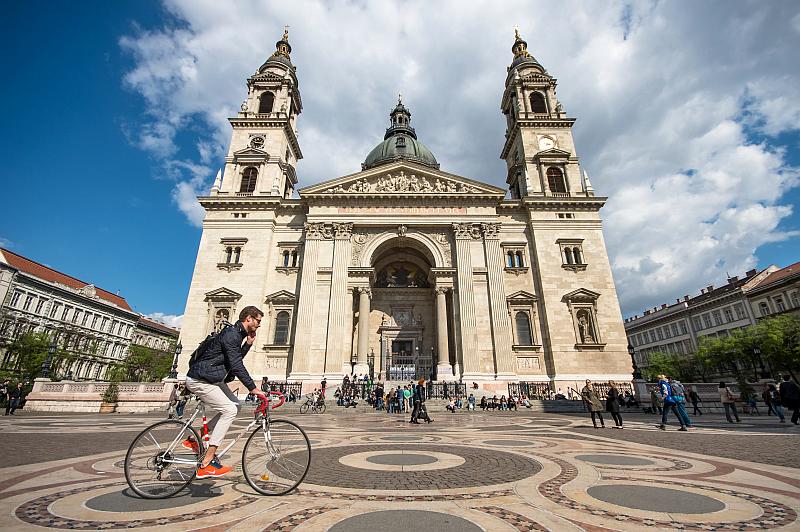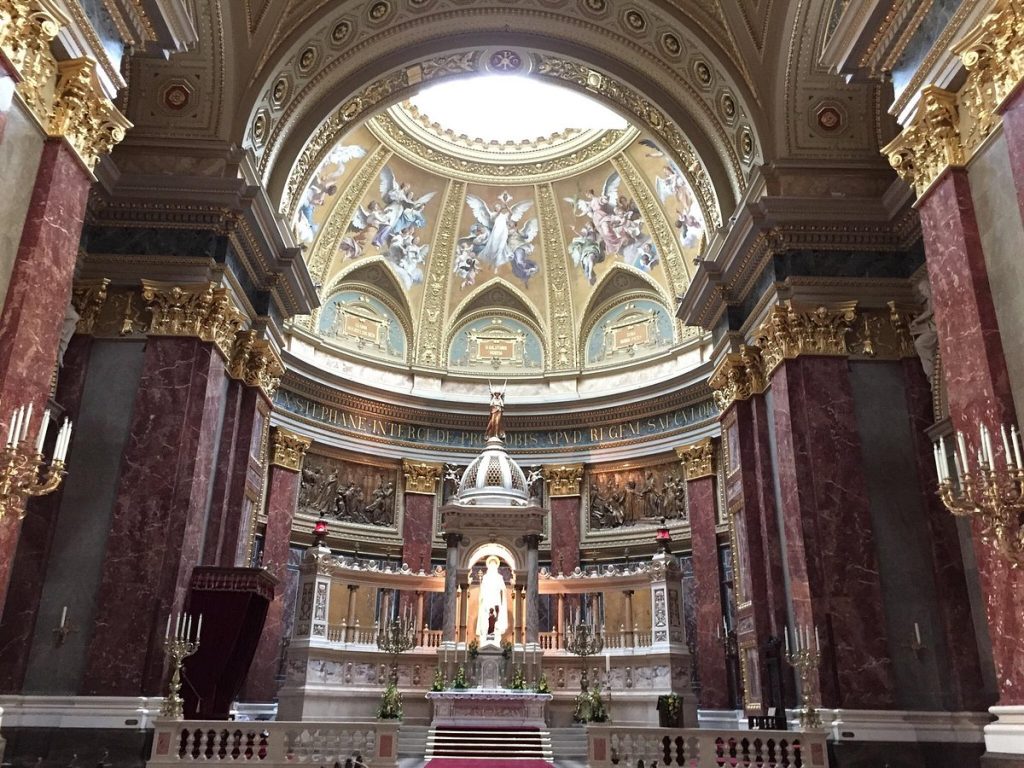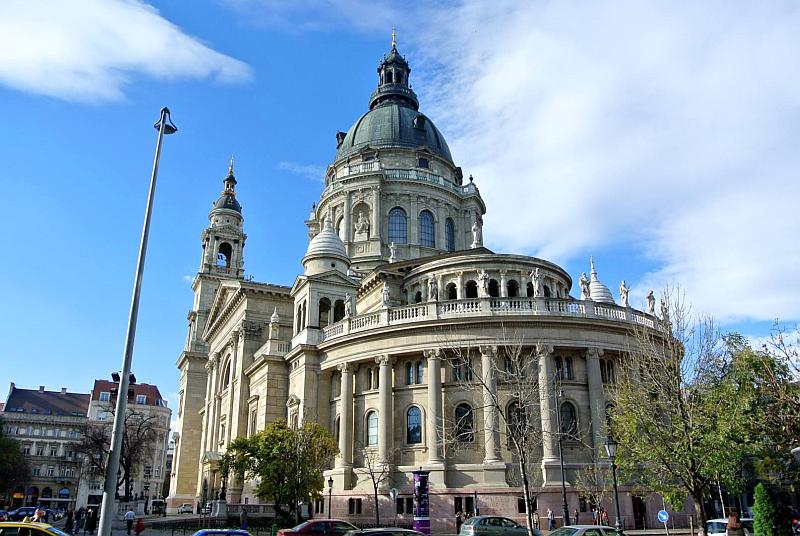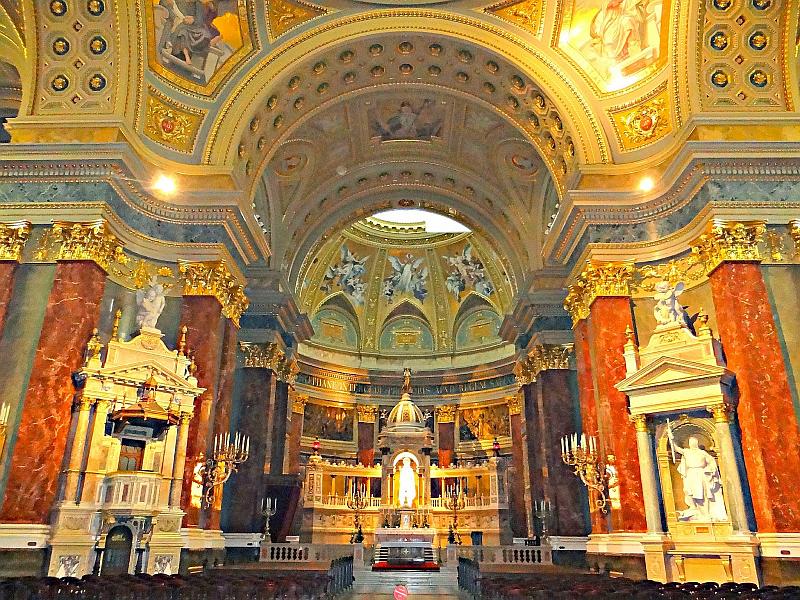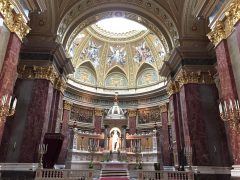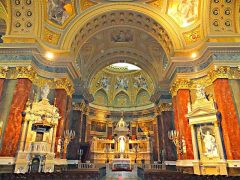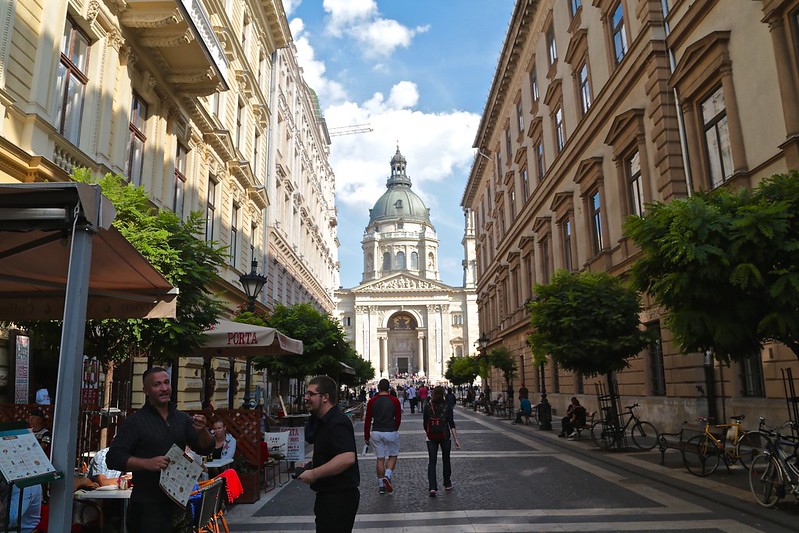Basilica of St. Stephen: A Beacon of Spiritual and Architectural Majesty in Budapest
The Basilica of St. Stephen stands majestically as an embodiment of faith and architectural grandeur in the heart of Budapest. As a fan of the city’s historical and cultural landmarks, we invite you to delve into the splendor and spiritual significance of this neoclassical masterpiece, Hungary’s most revered Catholic shrine.
A Monument to Faith and History
The Basilica, named after Hungary’s first king, St. Stephen, is not just a religious site; it symbolizes Hungary’s devout Catholic tradition and a testament to its rich religious heritage. The impressive facade and soaring dome add to Budapest’s iconic skyline, beckoning visitors from afar.
An Odyssey of Construction and Resilience
The Basilica’s construction spanned over five decades and was marked by significant challenges, including the collapse of its dome in 1868. This setback led to the demolition and rebuilding of the entire structure. The church’s eventual completion stands as a testament to resilience and ingenuity, making it a symbol of triumph over adversity.
Inside the Hallowed Halls
Inside the Basilica, visitors are greeted with reverence and awe. The interiors are adorned with intricate details and artistic embellishments. The treasury on the second floor houses an array of ecclesiastical artifacts, each narrating a part of the church’s spiritual journey.
The Holy Dexter: A Symbol of Christian Heritage
At the heart of the Basilica rests its most sacred relic: the Holy Dexter, the mummified right hand of King St. Stephen. This relic symbolizes Hungary’s Christian heritage and adds a layer of historical intrigue to its storied past.
Panoramic Views from the Neo-Renaissance Dome
Ascending to the dome of the Basilica rewards visitors with breathtaking panoramic views of Budapest. This vantage point offers a unique city perspective, blending historical landmarks with contemporary urban landscapes.
Did you know about the St. Stephen Basilica?
The Basilica of St. Stephen, known as Szent István Bazilika in Hungarian, is one of Budapest’s most important and iconic religious buildings. Here are some key facts about this Basilica:
- Dedication to St. Stephen: The Basilica is dedicated to Saint Stephen I, the first King of Hungary. His right hand, which is said to be a holy relic, is housed in the Basilica.
- Construction History: The construction of the Basilica began in 1851 and, after several interruptions and challenges, including the dome’s collapse in 1868, was finally completed in 1905. The project was overseen by several architects, most notably Miklós Ybl, one of the leading figures of 19th-century Hungarian architecture.
- Architectural Grandeur: The Basilica of St. Stephen is a stunning example of neoclassical architecture. Its massive dome, seen from many parts of Budapest, is one of the city’s most distinctive features. The building’s façade is adorned with sculptures and columns, showcasing impressive craftsmanship.
- Dimensions and Capacity: The Basilica is 96 meters (315 ft) tall, the same height as the Hungarian Parliament Building, symbolizing the balance between church and state in Hungary. It is 87.4 meters (287 ft) long and 55 meters (180 ft) wide. The Basilica can accommodate up to 8,500 people.
- Interior Artistry: The Basilica’s interior is richly decorated with frescoes, statues, and stained glass windows, contributing to its awe-inspiring ambiance. The high altar, where the holy relic of St. Stephen is kept, is a particularly notable feature.
- Panoramic Views: Visitors can climb to the base of the dome or take an elevator part of the way to enjoy a panoramic view of Budapest, offering one of the best vantage points in the city.
- Cultural and Musical Significance: The Basilica is a place of religious worship and a venue for cultural events, including classical concerts and exhibitions. Its excellent acoustics make it a popular location for organ and choir concerts.
- Tourist Attraction: As one of the most visited sites in Budapest, the Basilica of St. Stephen attracts tourists worldwide. Its architectural beauty, historical significance, and the relic of St. Stephen make it a must-visit destination.
The Basilica of St. Stephen is a magnificent symbol of Hungary’s religious heritage and architectural prowess, embodying historical and spiritual significance in the heart of Budapest.
Conclusion
The Basilica of St. Stephen is more than a cathedral; it’s a fusion of faith, history, and architectural magnificence. It invites visitors to immerse themselves in a narrative encompassing centuries, bridging past and present. Whether you are drawn to its spiritual significance, architectural beauty, or historical importance, the Basilica offers an experience that resonates with the essence of Budapest’s spiritual and cultural identity. As you explore this monumental cathedral, you’re not just witnessing a religious site but embracing a part of Hungary’s soul.
